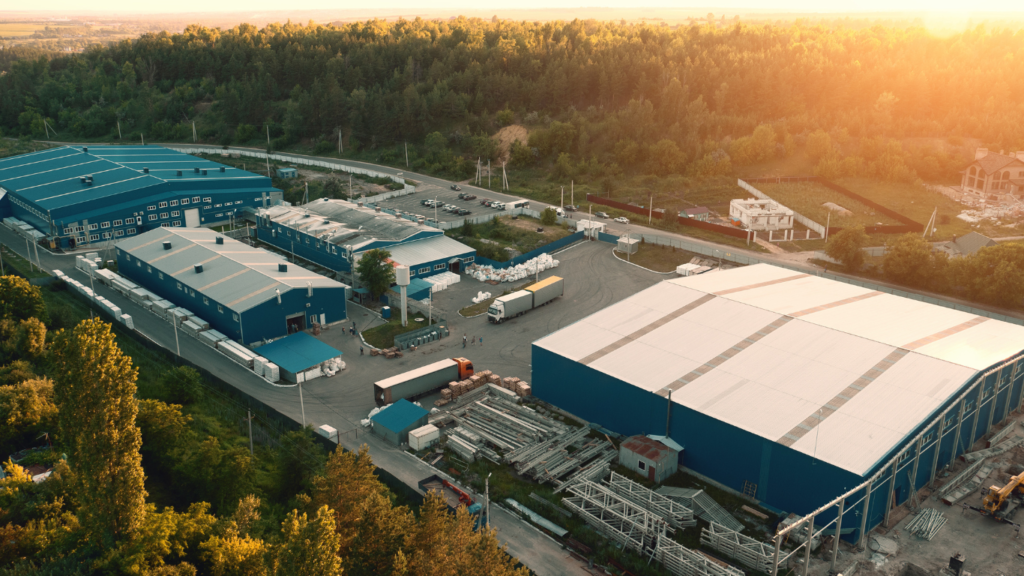Introduction
In the glass manufacturing industry, water management plays a crucial role in ensuring sustainable production processes. With increasing environmental concerns and stringent regulations, adopting a Zero Liquid Discharge (ZLD) approach has become essential. One effective solution to achieve ZLD is through the implementation of innovative technologies like Scaleban. In this blog post, we will explore the concept of ZLD, its significance for the glass manufacturing industry, and how Scaleban technology can help in achieving this sustainable goal.
Connect with us today for groundbreaking Zero Liquid Discharge solutions
Understanding Zero Liquid Discharge
Zero Liquid Discharge is an advanced water treatment process that aims to eliminate liquid waste discharge from industrial facilities. Traditional manufacturing processes in the glass industry produce substantial amounts of wastewater, which can be harmful to the environment if not properly managed. ZLD ensures that all wastewater is treated, recycled, and reused, leaving No wastewater to be discharged into freshwater bodies.
Connect with us today for groundbreaking Zero Liquid Discharge solutions
Importance of Zero Liquid Discharge in the Glass Manufacturing Industry
The glass manufacturing industry heavily relies on water for various processes, such as coc in cooling towers, cleaning, and shaping of glass. However, this water usage results in the generation of large volumes of wastewater containing impurities like dissolved solid discharge and heavy metals. Discharging untreated wastewater can lead to water pollution, ecosystem damage, and non-compliance with environmental regulations. By adopting ZLD, glass manufacturers can significantly reduce their environmental footprint, preserve water resources, and enhance their sustainability credentials.
Scaleban Technology: An Effective Solution
Scaleban is a technology-based company that provides sustainable solutions to the glass industry, enabling them to optimize Zero Liquid Discharge (ZLD) and water conservation objectives. Unlike costly conventional technologies such as Reverse Osmosis (RO) and Evaporators, which have high capital and operational expenses, Scaleban technology offers a non-conventional approach to achieving ZLD and water treatment goals in a cost-effective manner.
Developed in 1999, Scaleban technology focuses on creating innovative ways to address water treatment challenges while minimizing the use of energy-intensive and environmentally harmful technologies. Our approach emphasizes the direct utilization of wastewater in cooling towers, replacing freshwater without compromising plant performance. By employing this disruptive technology, glass manufacturing facilities can operate their cooling tower circuits at high cycles of concentration (COC) ranging from 15 to 20, with a TDS (Total Dissolved Solids) level of 25%-30%. This ensures scale-free, corrosion-free, and bio-fouling-free operations throughout the entire cooling tower system, including condensers and heat exchangers.
Compared to conventional technologies like wastewater RO and Evaporators (MEE), Scaleban technology surpasses them in several aspects. These include:
- 80% savings in CAPEX and OPEX: By utilizing “Scaleban,” glass manufacturers can significantly reduce their capital and operational expenses compared to traditional technologies, resulting in substantial cost savings.
- Energy efficiency and reduced CO2 emissions: “SCALEBAN” technology operates without consuming energy, effectively reducing carbon emissions and addressing global environmental concerns.
- Zero Footprint: Our equipment is designed to be compact and installed online, minimizing space requirements and further optimizing resource utilization.
- Quick ROI and easy installation: With a rapid return on investment (ROI) period of 12-18 months, glass manufacturers can quickly benefit from the implementation of Scaleban technology. Furthermore, the installation process is straightforward, ensuring swift results and minimal downtime.
- Long equipment lifespan: Scaleban equipment is built to last, with a lifespan of 20 years, ensuring sustained performance and reliability.
Implementing our water treatment process enhances the performance and longevity of heat exchangers by eliminating scaling, corrosion, and biofouling issues. By adopting Scaleban technology, glass manufacturers can achieve sustainable water management, optimize their ZLD objectives, and operate their facilities efficiently without experiencing plant downtime.
SDG 6: Clean Water and Sanitation
SDG 6 aims to ensure the availability and sustainable management of water and sanitation for all. Water scarcity, inadequate sanitation, and water pollution are challenges faced by many communities worldwide. By implementing ZLD practices, industries can play a pivotal role in supporting SDG 6 objectives. ZLD technologies, such as advanced water treatment systems like Scaleban, can effectively treat and recycle wastewater, minimizing water consumption and reducing the discharge of water into natural ecosystems. This approach promotes water conservation, mitigates pollution risks, and supports the provision of clean water resources for communities.

SDG 13: Climate Action
SDG 13 focuses on combating climate change and its impacts. As industries increasingly recognize their carbon footprint, addressing water-related emissions becomes crucial. ZLD practices contribute to SDG 13 by reducing greenhouse gas emissions and fostering sustainable water management. By implementing ZLD technologies, industries can minimize water usage and lower energy consumption associated with traditional wastewater treatment methods. Additionally, by reusing treated wastewater, freshwater sources are conserved, further mitigating the impact of climate change on water availability. The adoption of ZLD practices aligns with SDG 13’s call for sustainable production and consumption patterns, helping reduce the industry’s contribution to global greenhouse gas emissions and promoting climate resilience.
Conclusion
Zero Liquid Discharge is an essential goal for the glass manufacturing industry to mitigate environmental impacts and ensure sustainable operations. By implementing innovative technologies like Scaleban, glass manufacturers can effectively treat wastewater, prevent scaling issues, and achieve water reuse, leading to significant environmental and economic benefits. Scaleban technology offers a practical and reliable solution to support the ZLD approach, allowing the industry to minimize water consumption, reduce costs, and enhance its environmental stewardship. Embracing ZLD with Scaleban technology is a vital step towards a greener and more sustainable future for the glass manufacturing industry.
